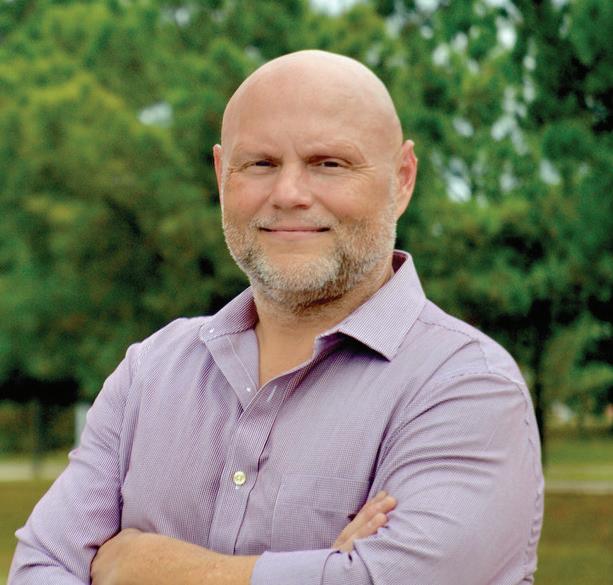
14 minute read
NEWS
from APRIL 2022
My Queer Texas Homecoming
Returning to the Lone Star State as an out gay activist.
By BRIAN GAITHER
For most of my years as an adult, I didn’t think of Texas as a place I could live. I left El Paso in 1993 and after college promised myself I’d build a life and career as an out gay man. At the time, Texas didn’t provide that opportunity in the way California, or states in the Northeast, did. Only after three decades, and a major U.S. Supreme Court decision in each of them — Lawrence, Obergefell, and Bostock — did I feel it was feasible for me to create in Houston the life I’d envisioned.
At the time, to be queer anywhere was to be the topic of debate among other people about what it meant to be “a homosexual” in our society. It was to hope every day for a shift in the conversation that might allow us to exist without the constant fear of being outed, fired, or worse. It was to wonder if our allies were dependable enough to help us find greater social acceptance and legal equality.
It took time, but things got better. We started to win protections against discrimination in employment and public accommodations. The internet offered us supportive networks that made it easier to come out and be visible. States began to recognize our committed relationships. The activism we’d learned fighting to survive the AIDS crisis quickened our political momentum. Questions about progress for LGBTQ people shifted from “whether?” to “when?” and “where next?”
In Dallas, Austin, Fort Worth, and San Antonio (cities where non-discrimination ordinances were passed by local lawmakers) it also got better. But the state government, rather than follow the lead of the millions of Texans in those cities, intensified its animus toward us. Time and again, legislators, statewide officeholders, and sundry public officials have invented ways to undermine and limit the rights of queer Texans. They’ve flouted decisions of the Supreme Court of the United States. They’ve introduced and enacted laws that target us for discrimination. They’ve turned on our families. And they’ve preserved outdated statutes that will end our marriages and make us criminals in the very instant they can persuade the newest bench of U.S. Supreme Court justices to agree with them.
The Texas I knew three decades ago was a place that worshipped football, roughnecks, and cowboys just as much as Jesus — dirty boots and pickup trucks the universal totems of its stylized masculinity. Today it’s the same. More here than in any other place I know, homophobia and transphobia are sustained by the misperception that boys who don’t grow into “real men” are defective. It’s still a struggle to communicate what it means to be “homosexual,” transgender, or non-binary when any public expression of our identities presents an implicit challenge to many Texans’ notion of “manliness.” For them, accepting us as equally Texan is to question the virility of the whole Lone Star State.
As a result, homophobia and transphobia in Texas run deeper than mere religious objection. Here, being queer is so foreign to the specific culture of stylized masculinity, even among the areligious, that to acknowledge our humanity would pollute the place — and every trace of us is to be erased because of how profoundly “un-Texas” we’re perceived.
This casual homophobia, endemic across Texas, is why our enemies are so busy here. Bigots angered by progress nationally have willing pawns among the state’s Republican politicians who not only need reliable primary votes from angry bigots, but who also think Texas is already under attack from leftists, who are happy for any chance to denounce whatever seems like “Californication” (California being the gendered antithesis of Texas), and who fear candidates further to the right will call their swagger a swish during campaign season.
It’s why they denounce the books which describe our lives as “pornography,” why they claim banning such books isn’t ideological, why they insist they’re protecting kids, and why they investigate loving parents whose only offense is having trans children. It’s why our allies — rational people, trained professionals, public administrators — don’t speak out on our behalf in greater numbers. It’s why we ourselves negotiate our own public (in)visibility more than necessary.
Every queer person who can live openly in Texas should be doing so. We have a right to be here, and we shouldn’t be ashamed to assert it. In whatever space we occupy, we should be talking about what it means to be a queer Texan. And those of us who are grownups have to stop making trans children fight this fight without us.
I’m back in Texas today as an out gay man, living among my family and friends, because people more courageous than I am made this possible for me. And I’m here to pay it forward, because it’s far past the time when any Texan should believe their best life can only happen somewhere else.
Texas is big enough to be our home too.
Brian Gaither, a gay activist, writer, and business professional living in Cypress, Texas, is on Twitter @briangaither.
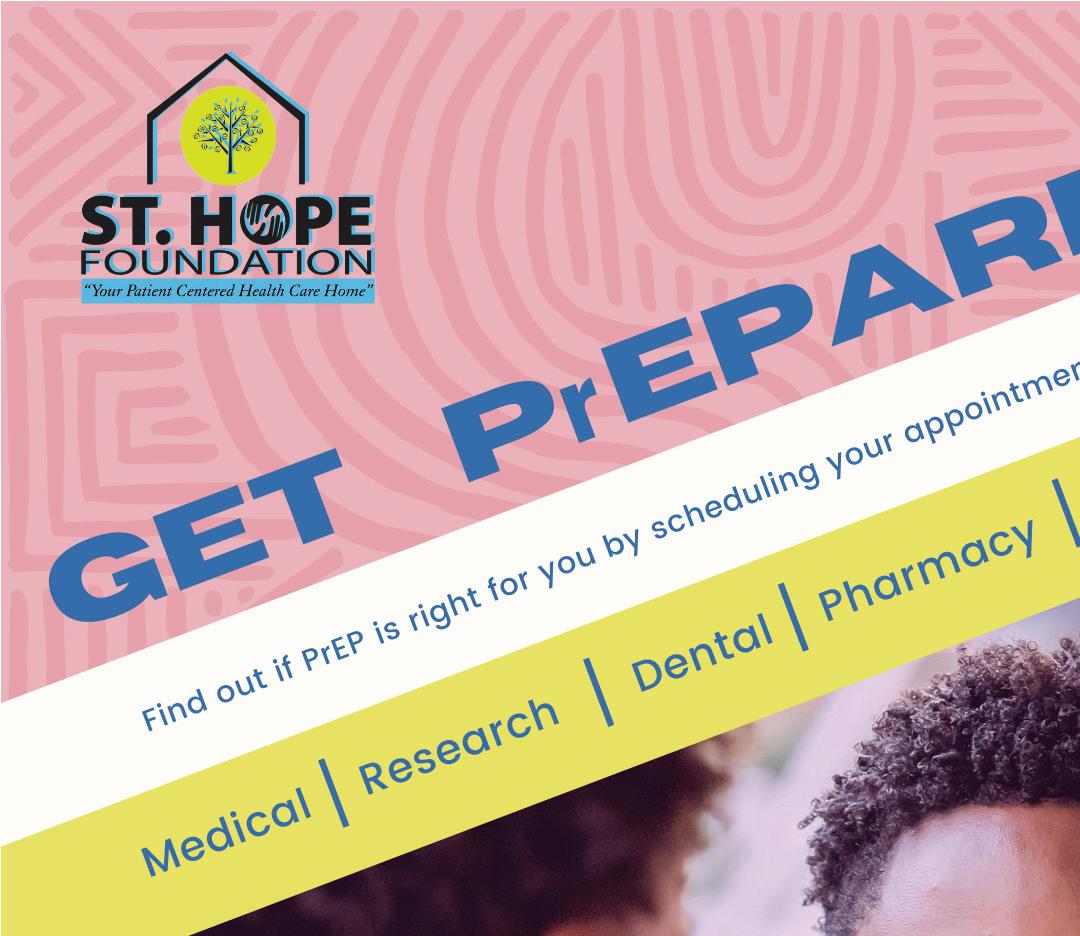
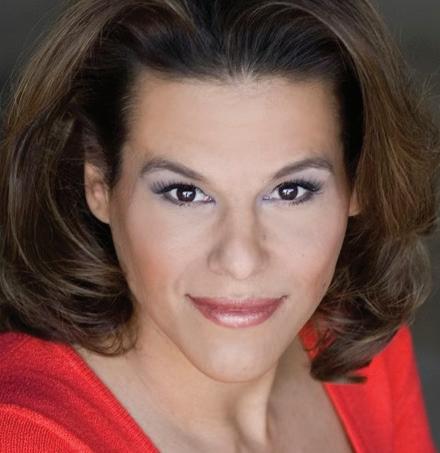
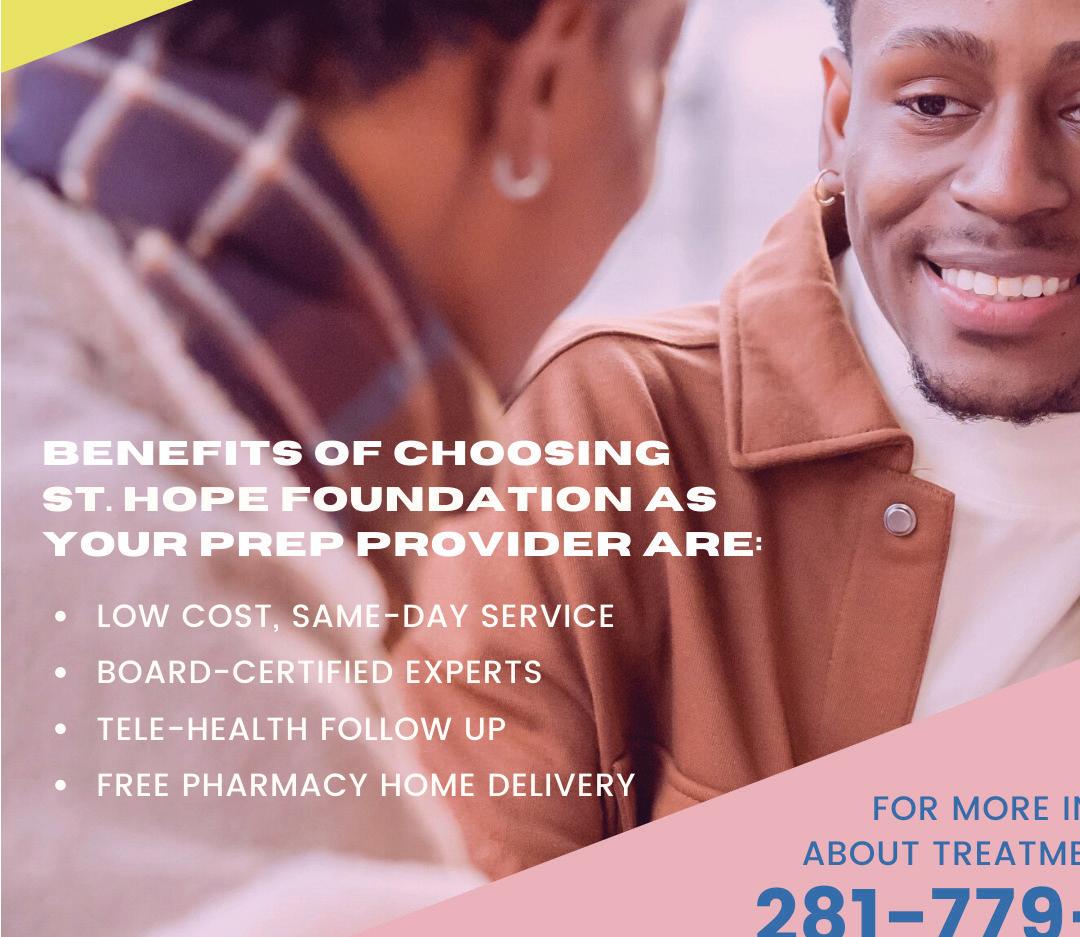


Geovanny Ramirez
713.384.1577 | PerfectPetalsGeo.com 3550 W T C Jester Blvd. Houston TX 77018 perfectpetalsbygeo@gmail.com
There’s No Stopping Us Now
Alexandra Billings keynotes this year’s HRC Houston dinner.
By MARENE GUSTIN
This year’s April 9 Human Rights Campaign (HRC) dinner is important for many reasons, but event co-chair Heather Taylor notes two in particular: “We celebrate our commitment as a community and our tenacity to keep raising critical funds and awareness for all humans.”
Taylor, who owns and operates the Mad Hat Maven creative agency, has been putting together HRC’s 2022 dinner by working alongside event co-chair Rey Ocanas, the executive VP and director of community development banking at PNC.
“There’s No Stopping Us Now” is the theme of this year’s dinner at the Marriott Marquis Downtown. The event begins at 5:30 p.m. with a welcome reception and continues with a seated dinner, a live auction, and a program featuring political speakers including Mayor Sylvester Turner, awards, celebrity guest keynote speaker Alexandra Billings, and an after-party.
Billings, a 59-year-old transgender actress, is known for being the second trans woman to play a trans character on TV, and ➝
for her roles in Transparent, Grey’s Anatomy, and The Conners. She is also recognized for her live-theater work and teaching.
Billings is also an activist for the LGBTQ community, and has won numerous awards for her work promoting equality and speaking out for AIDS causes. She has been living with HIV since 1985. Besides her GLAAD Media Award for Outstanding Comedy Series for Transparent, she was the recipient of the Human Rights Campaign’s Visibility Award in 2016. That award recognizes outstanding members of the LGBTQ community who live openly and freely in the public eye. During her acceptance speech, she said, “I cannot tell you how grateful I am that you’re here [looking] swell and eating the chicken, but I must tell you that we have to do something more than sit and speak and talk to our neighbors and eat great food and put on fancy clothes.”
The Human Rights Campaign’s Houston chapter has been very vocal about the onslaught of anti-trans activities in Texas and around the country in the last few years. On April 2, HRC Houston will host a noon Transgender Day of Visibility Rally at the Texas Capitol.
Last year, Texas Governor Greg Abbott signed into law House Bill 25, which requires K–12 students competing in interscholastic athletics to only play on sports teams that correspond to their gender at birth. This year, Texas Attorney General Ken Paxton—whose tweet last month (which misgendered U.S. Assistant Secretary of Health Rachel Levine) was marked as “hateful conduct”—issued an opinion that gender-affirming health care for children should be criminalized as a form of child abuse.
Governor Abbott followed up by ordering state agencies to investigate parents whose children are receiving gender-affirming health care, and threatening punishment for agents who fail to report it. The move has prompted an outcry from several corporations doing business in the state, and has forced some families with trans children to flee Texas in order for them to receive needed medical care. While this plays out in the courts, it is obvious that there is still much work to be done before transgender individuals finally achieve equality in Texas and around the country.
As Billings said in 2016, “We have to do something more than sit and speak and talk to our neighbors and eat great food and put on fancy clothes.”
What: HRC 2022 Houston Dinner When: April 9 at 5:30 p.m. Where: Marriott Marquis Houston, 1777 Walker St. Tickets: tickets.hrc.org
Harris County Resolution Denounces Attacks on Trans Kids and Their Parents
Rodney Ellis’ statement opposes Abbott’s child-abuse investigations.
By LOURDES ZAVALETA
One month after Texas Attorney General Ken Paxton and Governor Greg Abbott directed an attack on transgender children and their parents, Harris County doubled down on its efforts to protect these families.
On February 22, Paxton issued a 13-page nonbinding agreement stating that puberty blockers, hormone replacement therapy, and gender-confirmation procedures constitute a form of child abuse. One day later, Governor Greg Abbott instructed the Department of Family and Protective Services (DFPS) to begin investigating reports of parents providing gender-affirming medical care to their children as child abuse.
During a meeting on March 22, the Harris County Commissioners Court enacted a resolution that opposes Paxton and Abbott’s directive and supports the well-being of families with trans children. The resolution, authored by longtime LGBTQ ally commissioner Rodney Ellis, passed 3-2 along party lines.
“It’s our job to protect the Harris County residents, especially our children. Our transgender children in Texas are under attack,” Ellis said. “Harris County wants to [reassure] these youth that they are valued and belong in our society. No young person should have their identity targeted or attacked by state officials or anyone else.”
Nine speakers testified in support of Ellis’ resolution, while one spoke against it.
Texas Representative Jon Rosenthal, an LGBTQ ally whose district covers parts of Northwest Houston including Cypress and Jersey Village, said he attended the meeting because his constituents are “traumatized and afraid.”
“All of the children and all of the families in Harris County need to know we have their backs and their best interests at heart,” Rosenthal said. “Adopting Commissioner Ellis’ resolution sends that message.”
Tracy Shannon, who leads the Texas chapter of the anti-LGBTQ hate group MassResistance, was the only speaker opposed to Ellis’ resolution. “Every child has a right to unbiased health care that is free from the ➝
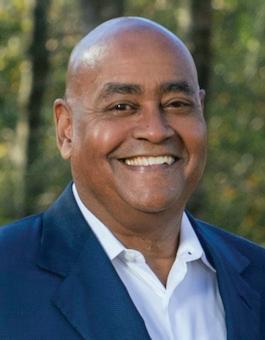














multiple locations throughout Houston Less than a 10 minute wait Board Certified Physicians Open 24/7/365, rain or shine LGBTQ+ and Allies safe space

New Montrose Location: 3209 Montrose Blvd, Houston, TX 77006 (281) 479-3293 ercare24.com
ME D I TAT ION DI SCOVERY
WITH KYLE YOUNG, MSW
LESS STRESS. MORE YAAASSS!

LEARN VEDIC MEDITATION IN HOUSTON.
JOIN A FREE INFO SESSION AT MEDITATIONDISCOVERY.COM
influence of political agendas,” Shannon said. “Unfortunately, that is not the case with the affirmation treatments, concerns over the long-term effects, no controlled trials, and the effectiveness and safety of these procedures.”
According to every major U.S. medical association, gender-affirming care for trans children is safe and medically necessary. Research shows that these treatments also significantly lower the odds of depression and suicide among trans youth.
“We need to listen to the science, we need to listen to the doctors, we need to listen to the families who know what’s best for them and their children,” local trans activist Lou Weaver told the Commissioners Court.
Parents of Transgender Youth founder Mandy Giles, a local mother who has two trans kids, told the court that one of her children received gender-affirming care as a minor. “It saved their life,” Giles said. “Providing my child with a loving environment that includes medically necessary health care is the opposite of child abuse. We all want our children to be healthy and safe, and parents of trans kids are no different.”
Rebecca Bryant, who has a young trans daughter, says the last year has been extremely tough on her family. After fighting against a record number of anti-trans bills during the 2021 Texas Legislative Session, she now lives in fear of being separated from her child. “We are a loving home and our children are thriving and they are full of joy and mischief, and it is unthinkable that anyone believes that our child should be taken away from us,” Bryant said. “The thought of CPS knocking on our door keeps me in a state of terror, and I haven’t slept in weeks.”
Prior to the vote, Hidalgo told transgender children and their families that she stands with them. “I believe this state should be welcoming to all children—including transgender children,” she said, noting that Harris County attorney Christian Menefee pledged not to prosecute any parents of transgender children.
Ellis said he is looking beyond the resolution, and that his office is working with the County Attorney’s Office to find other ways to protect trans children and their parents. “Resolutions do matter, which is why we did this one,” he concluded. “But we’re working with the county attorney to see what else we can come up with.”
The March 22 Harris County Commissioners Court meeting can be viewed at facebook.com/ HCPrecinct4/videos/495343315566185.

If you have diabetes and are overweight, you could have silent liver disease too.


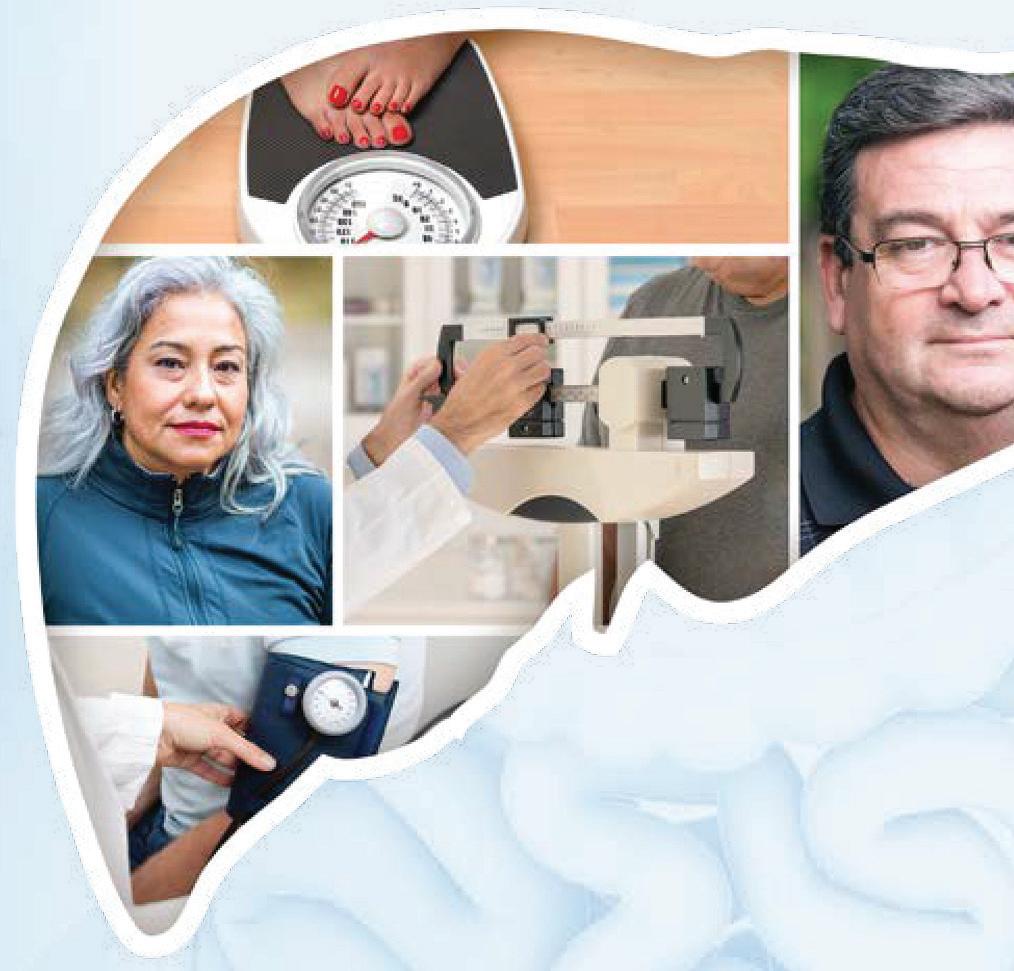

Learn about fatty liver disease and NASH, and see if you may qualify for a clinical trial.
About NASH

If you have diabetes or struggle with your weight, you may have fatty liver disease. A severe form of fatty liver disease, called nonalcoholic steatohepatitis (NASH), often has no symptoms but can cause significant damage to your liver if not diagnosed early. While there are no medications approved for NASH (as of May 2020), a clinical trial may be an option for you.
About the Clinical Trial
The MK-3655 Clinical Trial is evaluating the safety and effectiveness of MK-3655, an investigational medication for people with NASH. This trial will test MK-3655 compared to placebo. A placebo looks like the study medication but contains no active ingredient.
You may be able to participate if you:* If you qualify and decide to participate:
• Are a male or postmenopausal female, 18 to 80 years of age [in Japan: 20 to 80 years of age] • Have NASH confirmed by a liver biopsy • Do not have type 2 diabetes OR have type 2 diabetes that is well controlled by diet or a stable dose of diabetes medication • Have had a stable weight for at least 3 months • Your liver and your overall health will be monitored closely by an experienced study team • You will receive the investigational medication and study-related doctor visits at no charge • The information gathered may help advance medical knowledge about NASH and may improve patient care in the future • Participation is voluntary, and you are free to withdraw from the study at any time. Your privacy will be maintained throughout the clinical trial
*There may be additional requirements to participate. The study doctor can provide you with more information. Additional potential risks and benefits of participation will be fully described to you by your study team.










